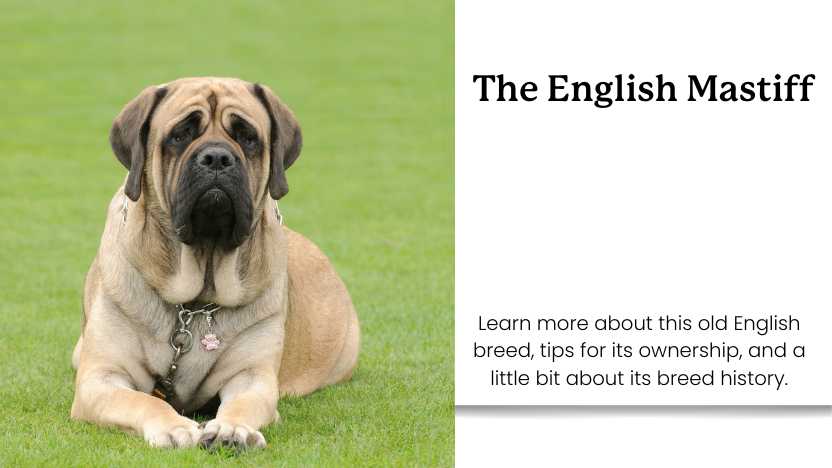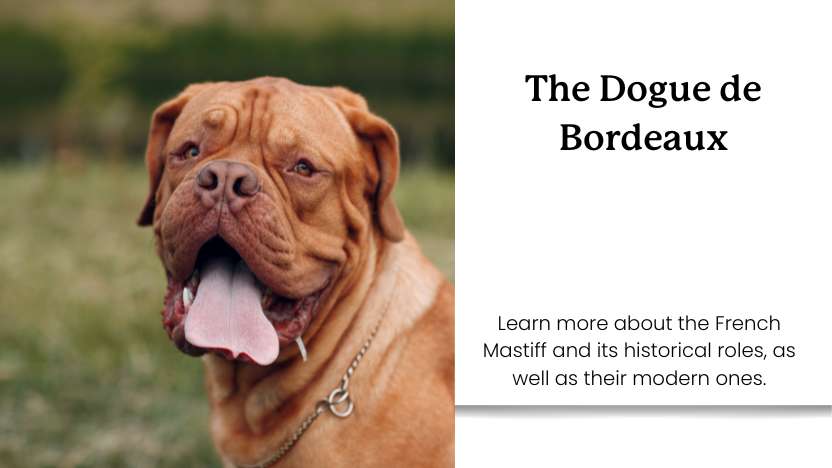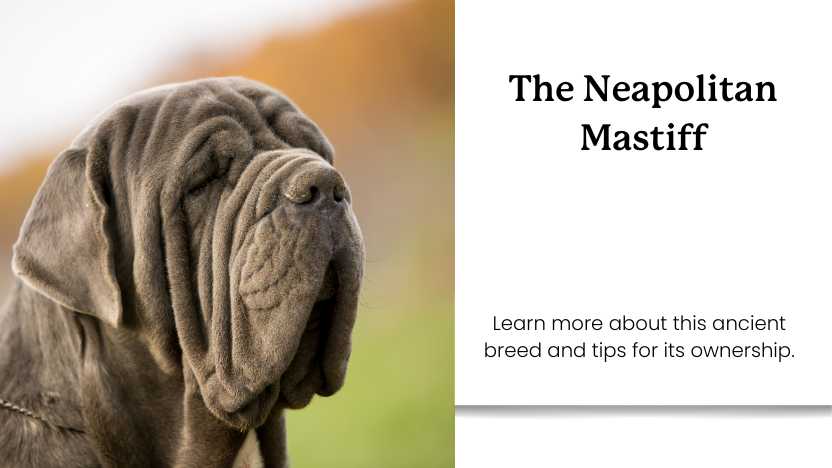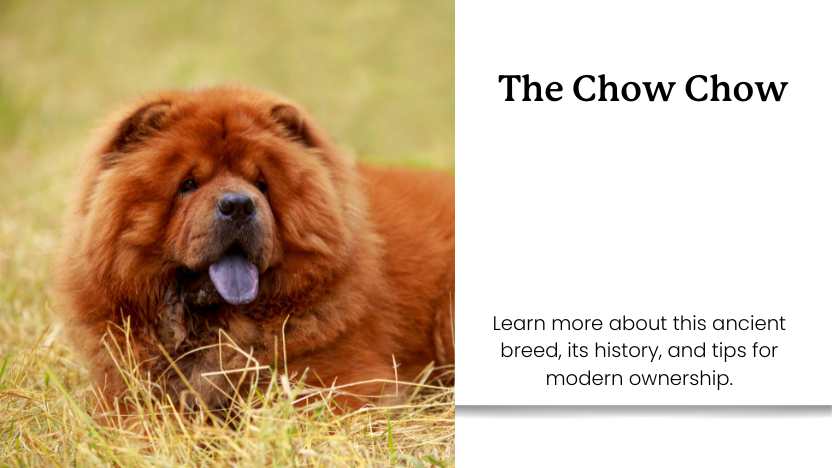The English Mastiff was bred to be a working and guarding dog, with roots that stretch back thousands of years. These massive, noble dogs once fought alongside warriors and protected estates—but today, they’re known as gentle, loyal, and deeply affectionate companions.
Despite their calm temperament, English Mastiffs require committed care—especially when it comes to joint health. Their enormous size puts significant strain on their bones and joints, making early preventive care essential. This guide explores the breed’s history, personality, common health concerns, and what it takes to raise a healthy, happy Mastiff.
Let’s begin.
The History of English Mastiffs
The English Mastiff is one of the oldest dog breeds in the world, with ancestors that date back to ancient Babylon, Egypt, and Rome. These early mastiff-type dogs were used in battle, guarding, and even gladiator-style fighting. In Britain, they evolved into the classic English Mastiff we recognize today—massive, powerful, and courageous.

During the Middle Ages, Mastiffs guarded castles and estates, protected livestock, and served as war dogs. But over time, breeders focused more on tempering their aggression while preserving their strength and loyalty, resulting in today’s even-tempered, devoted version of the breed.
Despite nearly disappearing during World Wars I and II, the breed was preserved and revived through careful breeding in both England and the United States.
English Mastiff: Breed Snapshot
- Group: Working
- Size: 160–230 lbs
- Lifespan: 6–10 years
- Temperament: Loyal, calm, protective
- Exercise Needs: Moderate (daily walks)
- Common Health Issues: Joint problems, bloat, heart disease
Modern-Day Mastiffs
Today’s English Mastiffs are known for their calm and loving nature. While they retain a guardian’s instinct, they’re typically very gentle—especially with their families. They’re not known for being high-energy or aggressive, but their sheer size demands space, structure, and early training.
They are deeply loyal, protective without being reactive, and tend to be slow-moving, affectionate shadows of their favorite humans. However, their health and physical needs are substantial, particularly when it comes to joint support and mobility.
English Mastiff Temperament & Personality
Mastiffs are calm, quiet, and emotionally sensitive dogs. They tend to form strong bonds with their families, often becoming extremely loyal to one or two primary caregivers. Their protective instincts are balanced by an innate gentleness—most Mastiffs will position themselves between you and a perceived threat, rather than bark or lunge.
They’re excellent with children, typically very tolerant and patient. However, because of their size, supervision is important to prevent accidental knocks or tip-overs.
They’re generally low-energy indoors but still need daily walks and engagement to stay fit and prevent boredom. Mastiffs do best with owners who are calm, consistent, and committed to routine health support.

Common Health Issues in English Mastiffs
The number one health concern for English Mastiffs is hip and elbow dysplasia. Their size alone—many weigh over 160 pounds—puts immense pressure on their joints. Without early support, they are extremely prone to arthritis and mobility issues later in life.
These issues are often hereditary but can be managed or delayed through smart care. Puppies are especially vulnerable during their rapid growth phase.
Other health concerns include:
- Bloat (gastric torsion) – a life-threatening condition common in deep-chested breeds
- Heart issues – including cardiomyopathy
- Obesity – which further strains joints and can shorten lifespan
To support a Mastiff’s joint health:
- Use large-breed puppy food to control early growth rate
- Keep weight in a healthy range at all stages of life
- Start joint-supportive supplements early—glucosamine, chondroitin, turmeric, and CBD oil or chews are all helpful
- Provide soft, supportive bedding and avoid frequent jumping or stairs
Exploring Bloat & Bloat Prevention in English Mastiffs
Bloat, also known as gastric dilatation-volvulus (GDV), is one of the most serious and life-threatening conditions in English Mastiffs. It occurs when the stomach fills with gas and twists on itself, cutting off blood flow and requiring immediate emergency surgery. Unfortunately, large, deep-chested breeds like Mastiffs are at significantly higher risk.
These dogs have stomachs with more room to flip or rotate, and this rotation can occur when dogs gulp air while eating, eat large meals rather than spaced out meals, exercise excessively around mealtime, or experience anxiety that interferes with their eating habits.
While there’s no guaranteed way to prevent bloat, there are several steps owners can take to reduce the risk:
- Feed multiple smaller meals per day instead of one large meal.
- Avoid vigorous exercise an hour before and after eating.
- Use a slow feeder bowl to prevent gulping and excess air intake.
- Avoid Elevated Food Bowls: Elevated feeders were once recommended, but recent insights show that they could be linked to an increased risk of bloat in large dogs.
- Consider a gastropexy surgery (stomach tacking), especially if your dog is already undergoing a spay or neuter. This can help prevent the stomach from twisting in the future.
- Monitor for symptoms like unproductive retching, a distended belly, restlessness, or signs of pain—and act fast. Bloat can progress in minutes, not hours.
Recognizing the early warning signs and acting quickly can save your Mastiff’s life. If you suspect bloat, go to an emergency vet immediately—this is not a condition that can wait.
Is an English Mastiff Right for You?
If you want a calm, loyal, and deeply loving dog—and you’re ready for the responsibility of a giant breed—the English Mastiff may be a perfect match. They’re ideal for low-key households with the space and resources to support their health needs.
However, first-time dog owners or those in apartments may struggle to provide what this breed needs. Mastiffs require space, joint support, and plenty of structure to live long, comfortable lives.
In return, you’ll gain one of the most emotionally devoted, quietly protective companions in the dog world.









